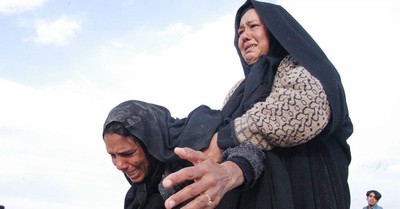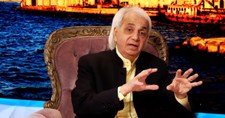
Trending Articles
Recent News
Angel’s ‘Testament’ Reimagines the Book of Acts in a Modern World Son Says Jimmy Swaggart in Critical Condition and Needing a Miracle Radical Militants Attack Nigerian Christians, Leaving 200 Dead 'No Kings' Protests Spark Violence in Major Cities Abe Bueno-Jallad (Big James) on the Emotional Weight of Filming The Chosen’s Final Seasons Clayton Kershaw Points to Genesis 9 at Dodgers Pride Night What Christians Need to Know about the Latest Israel-Iran Conflict Minnesota Shooting Suspect Described as Christian, Conservative and Drawn to Conspiracies ‘The Chosen’ Star Abe Bueno-Jallad Says Playing Big James Led Him Deeper into the Bible
Trending Articles
Recent News
Angel’s ‘Testament’ Reimagines the Book of Acts in a Modern World Son Says Jimmy Swaggart in Critical Condition and Needing a Miracle Radical Militants Attack Nigerian Christians, Leaving 200 Dead 'No Kings' Protests Spark Violence in Major Cities Abe Bueno-Jallad (Big James) on the Emotional Weight of Filming The Chosen’s Final Seasons Clayton Kershaw Points to Genesis 9 at Dodgers Pride Night What Christians Need to Know about the Latest Israel-Iran Conflict Minnesota Shooting Suspect Described as Christian, Conservative and Drawn to Conspiracies
Positive Stories
Celebrity
Video
Opinion
Church
Entertainment
Sports
Movies
Politics
Israel
Christian News Headlines - Breaking and Trending Religion News
Crosswalk Headlines - Christian news brought to you by a group of Christian writers and editors who are dedicated to creating a well-rounded look at what’s happening across the globe from a Christian worldview. Our vision is to inform and inspire productive discussion about the current events and online trends that shape our lives, our churches and our world.Crosswalk Headlines includes blog posts about current events and Christian media, breaking news, feature articles, and guest commentaries, many written by respected Christian thinkers.



































































